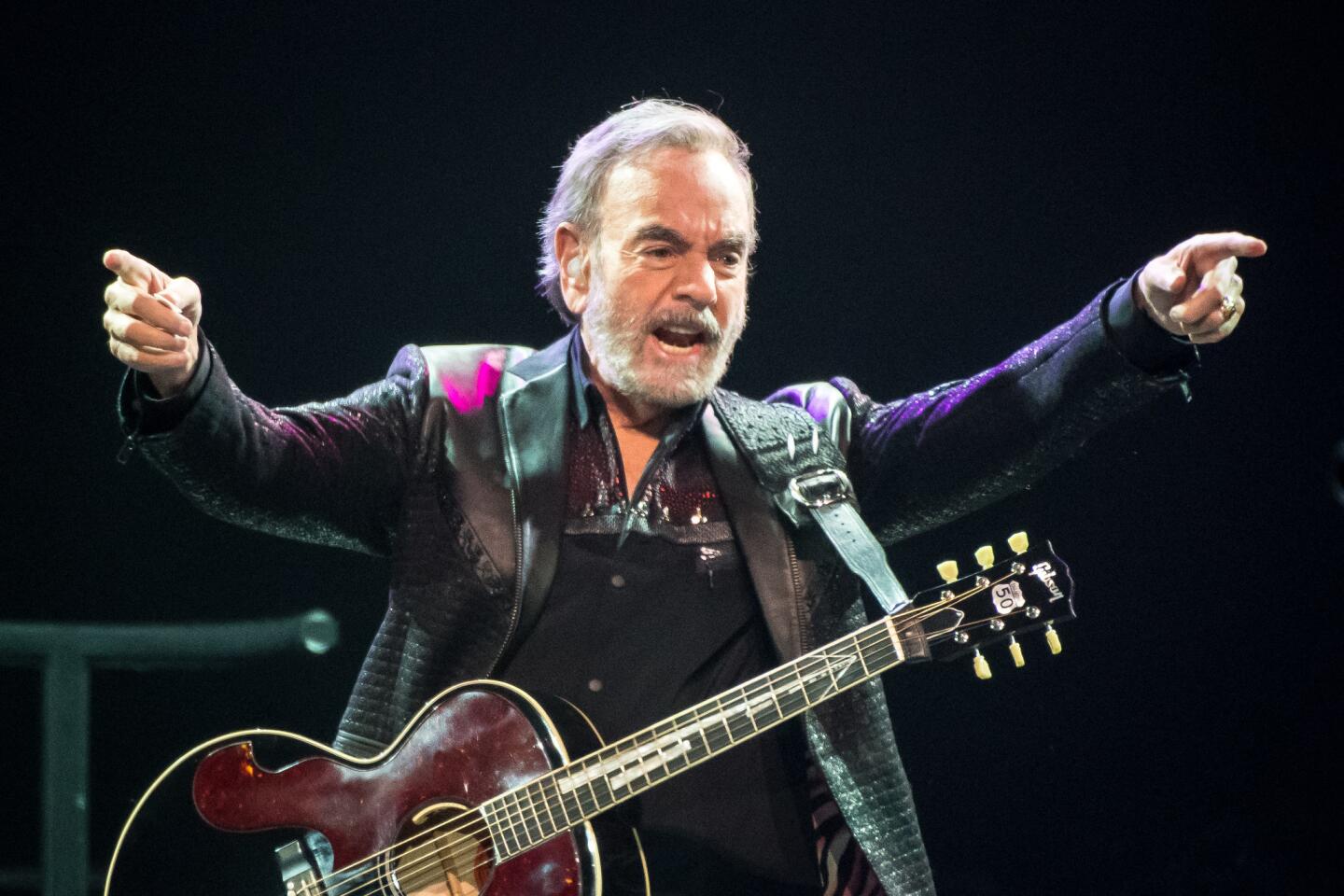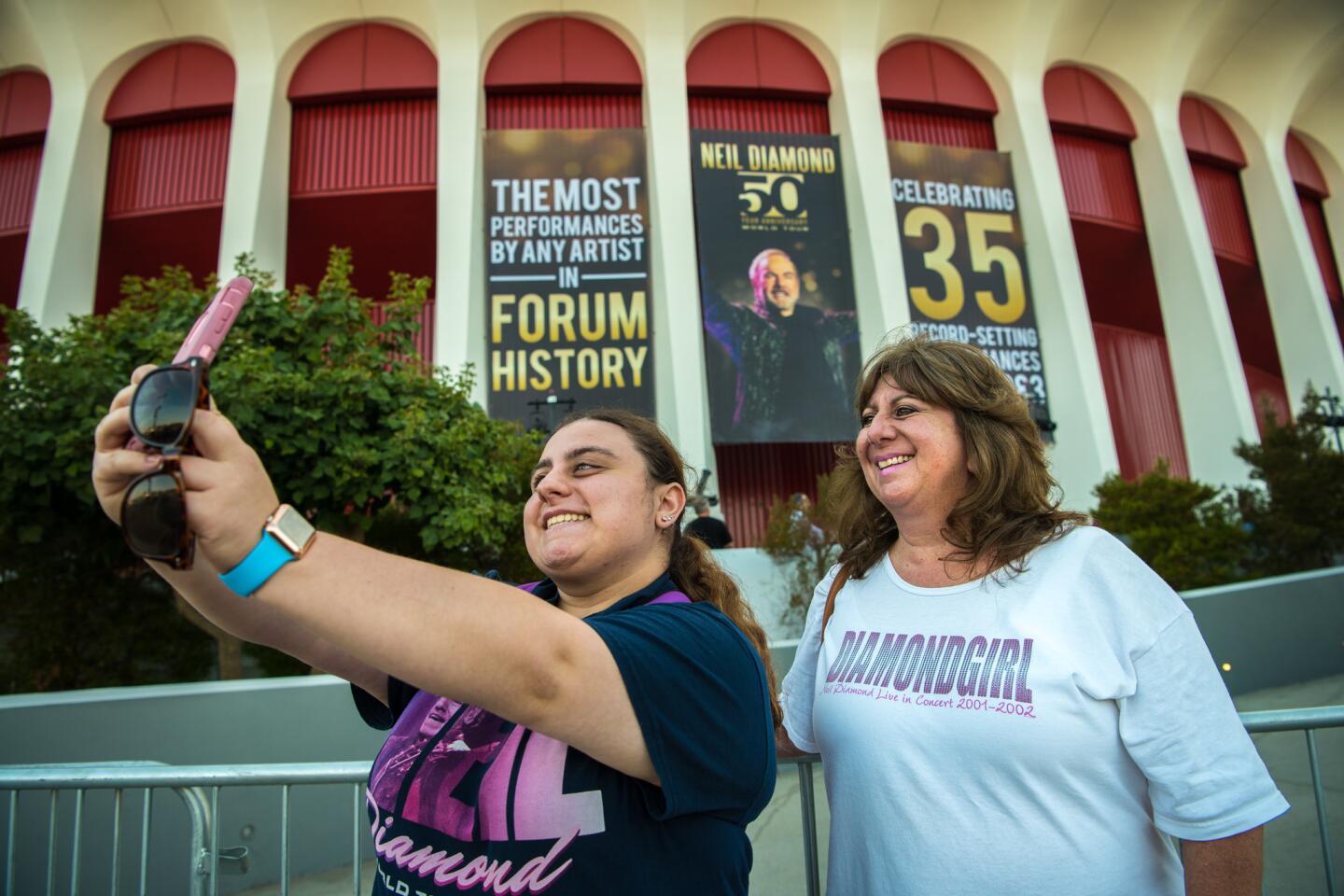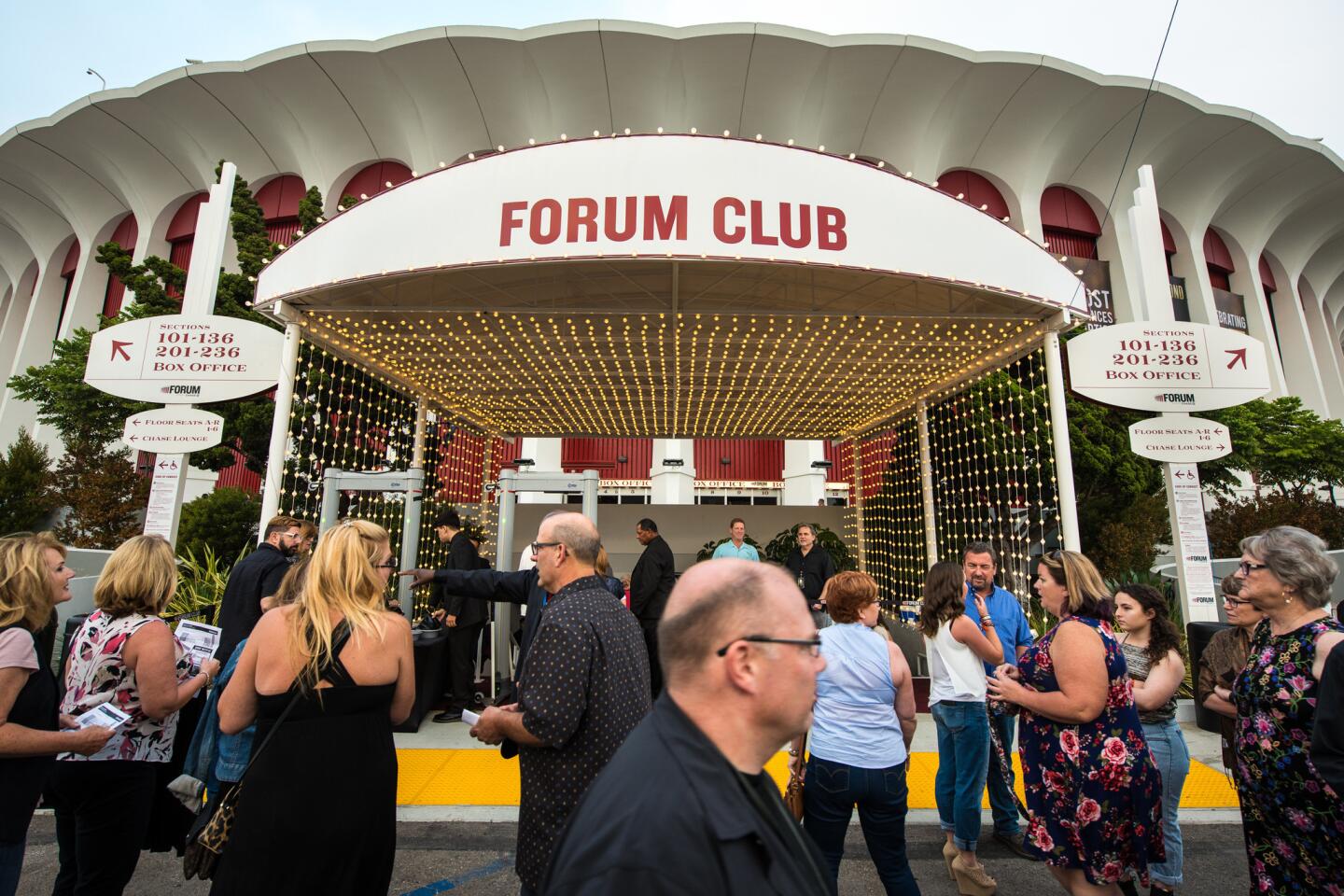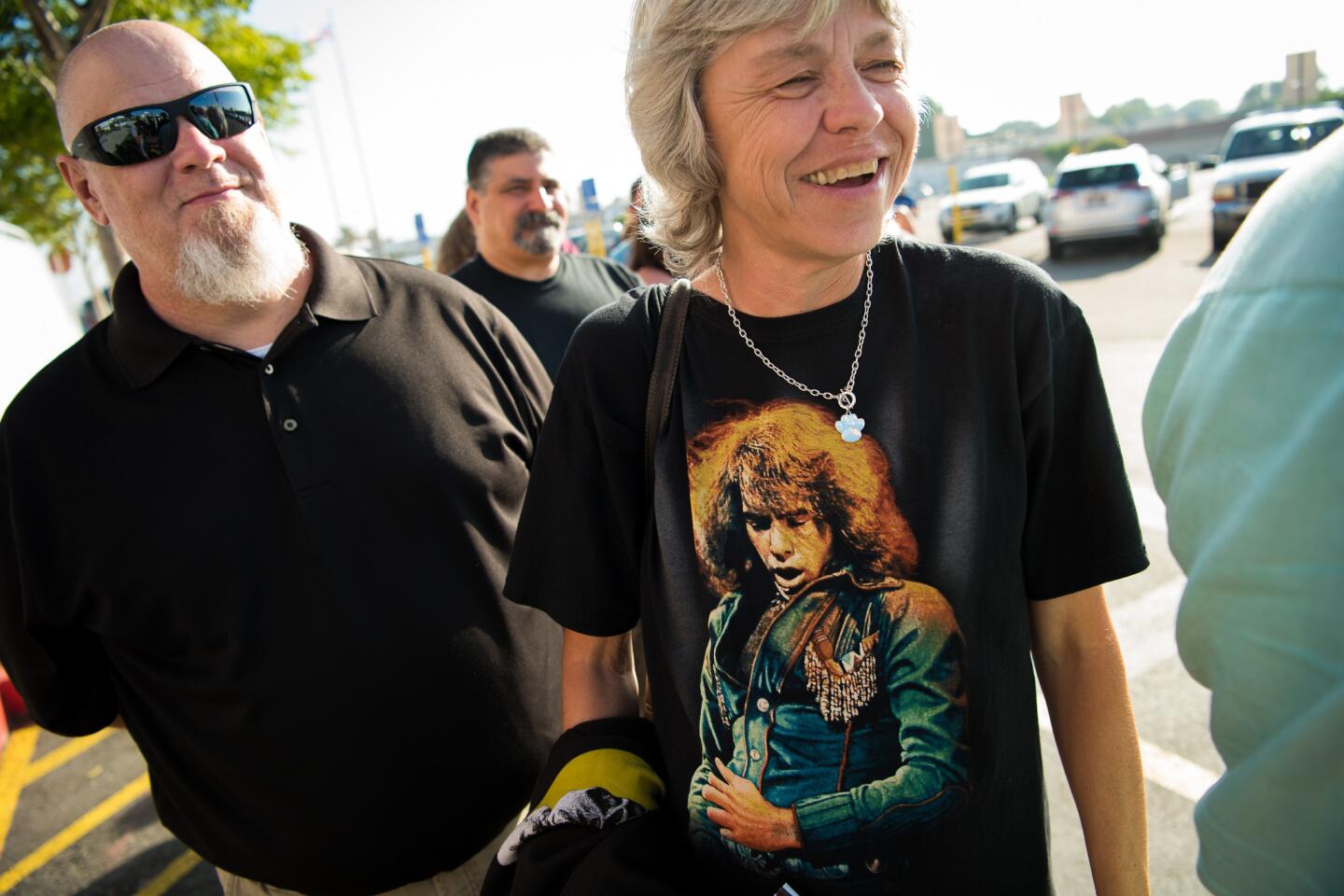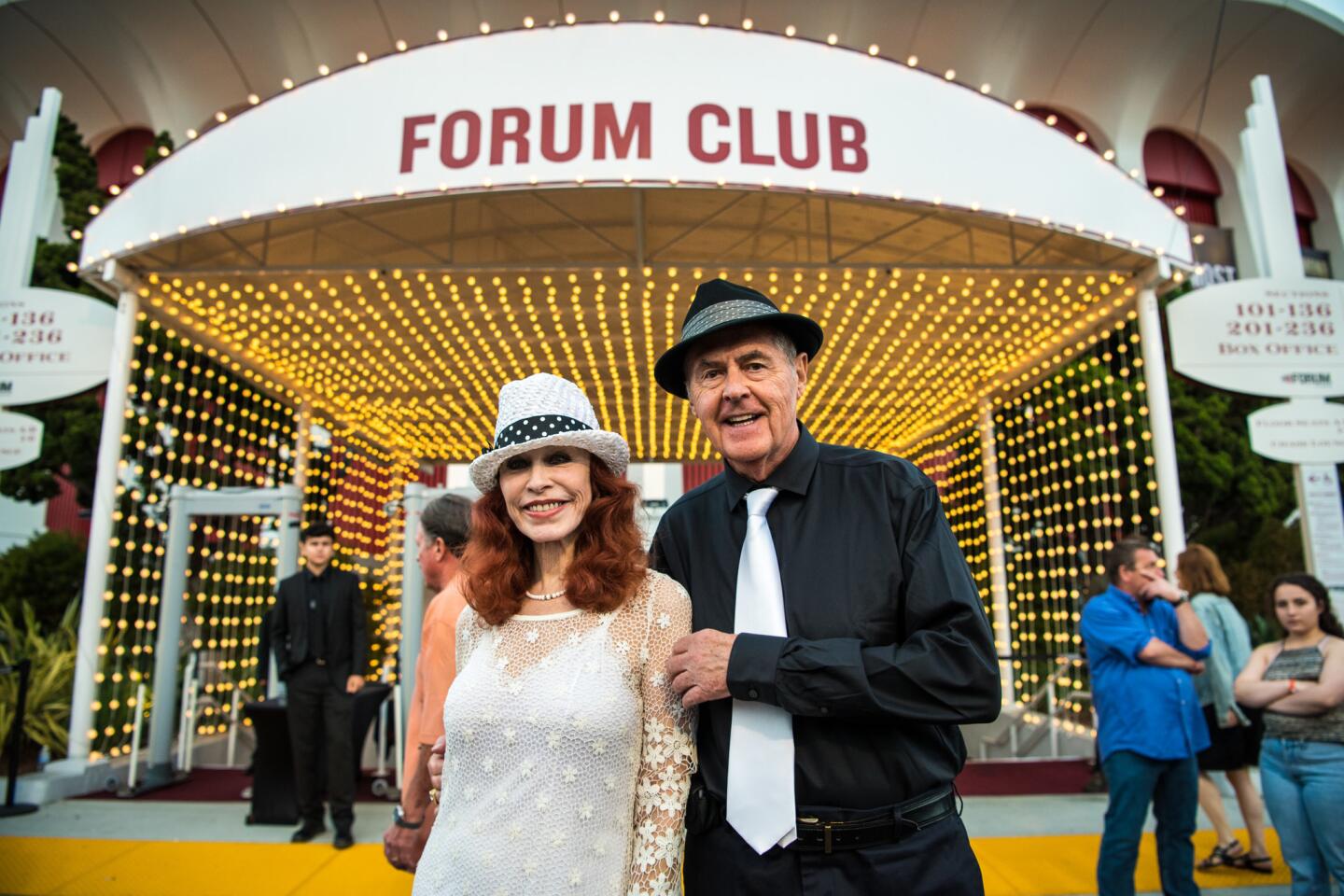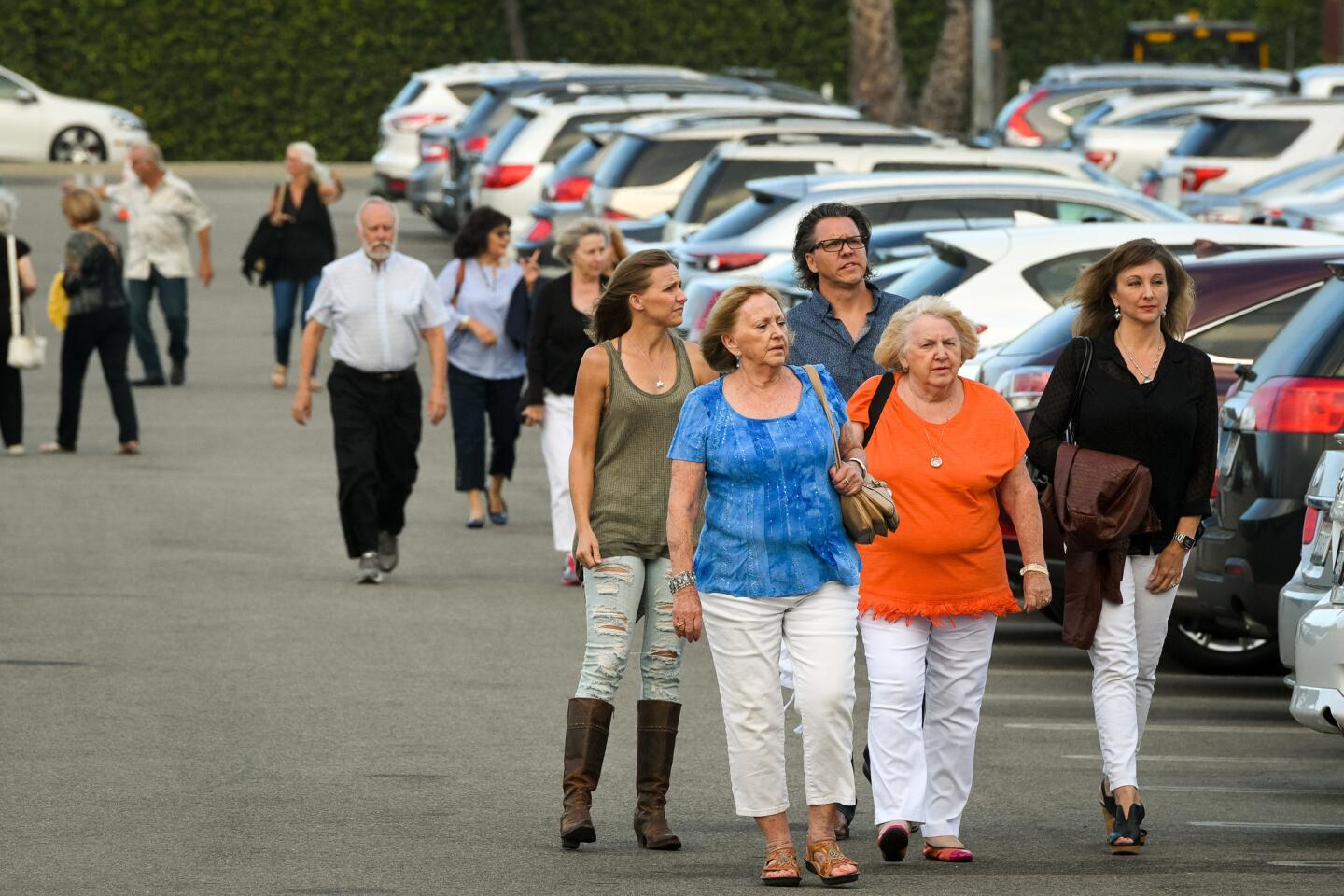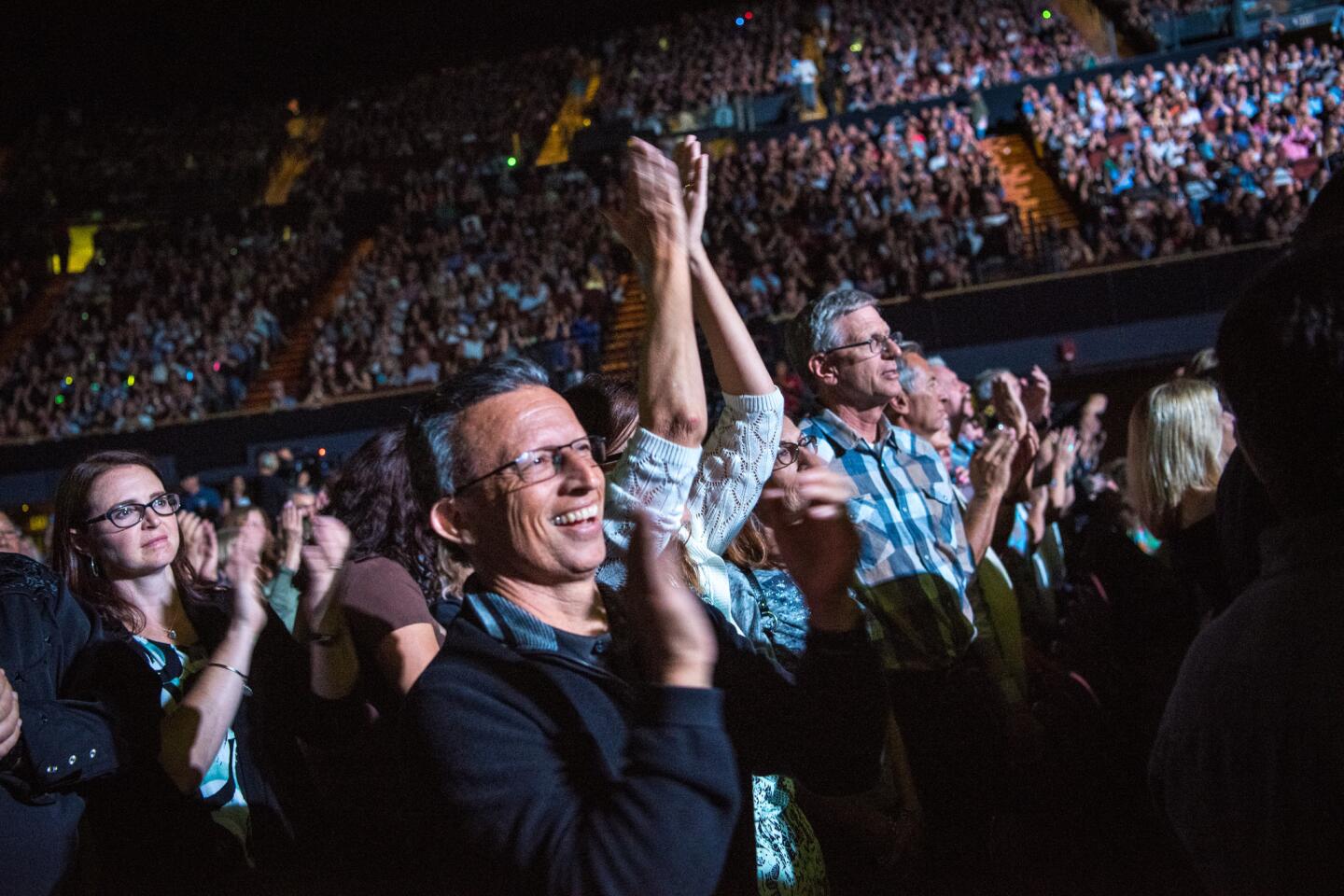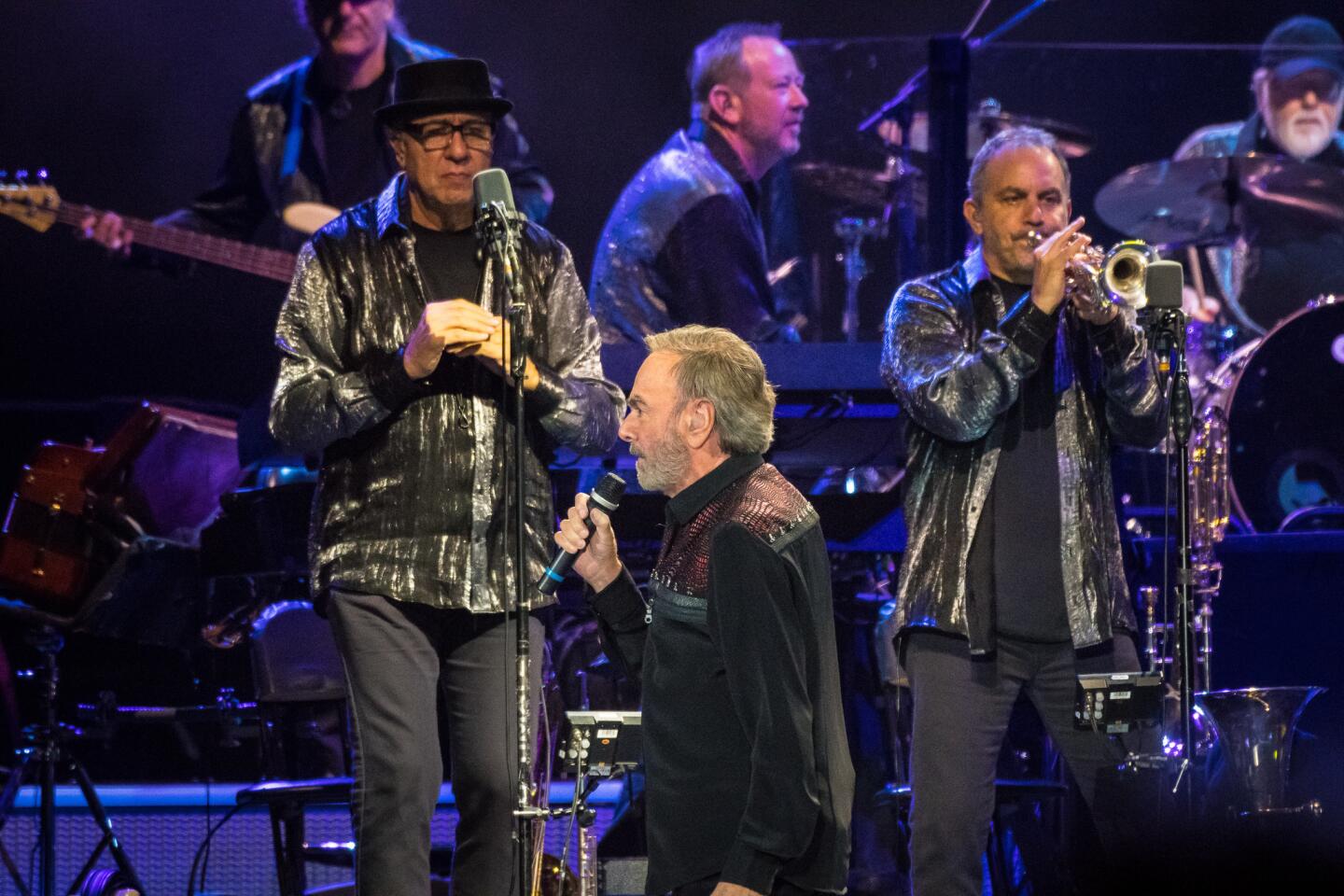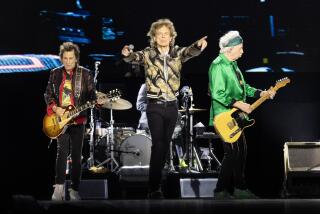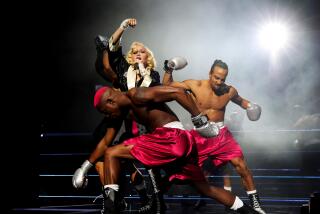Review: From sex bomb to philosopher: How Neil Diamond celebrated 50 years in show business
You’ve seen the photos and the videos, or perhaps you were there to see for yourself.
Either way, you’re familiar with the figure Neil Diamond used to cut onstage: the long-haired showman sweating beneath his sequins, a look of ecstatic abandon on his face as he delivered the secular gospel of songs like “Holly Holy,” “Dry Your Eyes” and “I Am… I Said.”
This is the sex bomb pictured just before detonation on the cover of “Hot August Night,” the classic live album Diamond recorded in 1972 at the Greek Theatre in Los Angeles. And it’s the outsize character that’s allowed Diamond to maintain his place in the popular imagination — that propelled him to a new road show celebrating his half-century in the entertainment business — even as much of his music has fallen out of earshot.
Yet this wasn’t the guy, not quite, who turned up Saturday night at the Forum, where Diamond, now 76, played the second of two concerts to finish the American leg of his 50th anniversary tour. (In another sign of the singer’s endurance, the Forum said that Saturday marked his 35th gig at the Inglewood arena — more than by any other act.)
Here, in place of the sex bomb was a slightly different Diamond: older, of course, but also calmer, more even-keeled, with the contented air of a seeker who’s finally found what he’s looking for.
At one point, he played “Done Too Soon,” his fast-talking laundry list of luminaries (including Jesus Christ, H.G. Wells and “Alexanders King and Graham Bell”) who died before they could complete their life’s work. And you understood that when the song came out, in 1970, Diamond was facing up to an anxiety of his own.
But Saturday, he sang it, cool and collected, from the other side of that uncertainty. He’d gotten his work done, and with years to spare; now Jesus and the rest were objects of his kingly sympathy.
Diamond has done the aged-philosopher thing before. In 2005, he teamed with producer Rick Rubin for “12 Songs,” an album of stripped-down acoustic music not dissimilar to the records Rubin made with Johnny Cash near the end of Cash’s life.
For all its creaky textures, “12 Songs” still captured a man looking hungrily toward the next high.
But for all its creaky textures, “12 Songs” still captured a man looking hungrily toward the next high. “Time is hurrying on,” he sings in “Save Me a Saturday Night,” before pleading with a lover to “leave me some room at your table.”
And though he went on to make another willfully unflashy album with Rubin, Diamond in his live performances over the last decade stuck mostly to his signature flamboyance — as when he revisited the Greek Theatre in 2012 or when he belted his tune “Pretty Amazing Grace” while sauntering down a catwalk at the Hollywood Bowl just two years ago.
In contrast, Diamond didn’t do much sauntering at the Forum; indeed, he didn’t move much at all. A new stiffness seemed to have set into the singer’s once-agile body, restraining his natural choreography to a handful of small, slow gestures.
Nor was he the laugh machine I’ve seen him be recently — the slyly self-effacing joker capable of charming even the most jaded of audiences, such as the room of industry insiders he slayed in February at Clive Davis’ annual pre-Grammy Awards gala.
Yet none of this made the show feel like a less-than proposition; you hardly had the sense that you were experiencing a faded version of a more vivid thing. The changes in Diamond’s style registered instead as a conscious choice: a realignment of his onstage persona with the quiet thinker you’re likely to encounter if you sit down with him.
And that didn’t just allow for more psychic space to appreciate Diamond’s singing, which was rich and steady throughout his two-hour set. It also allowed you to focus on aspects of his artistry that have sometimes been overwhelmed by sheer pizzazz.
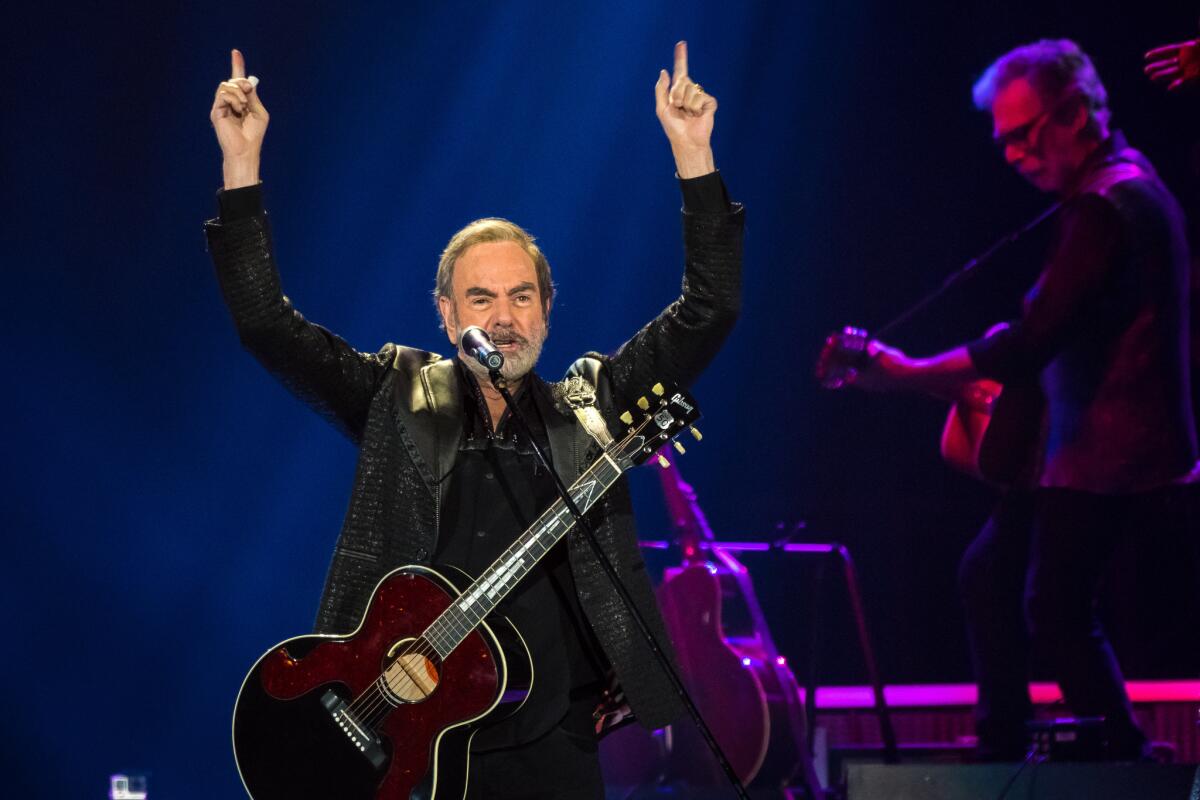
For example: his surprising assessment of his own stuff. Sure, the 50th-anniversary rubric gave Diamond some license to roam beyond “Sweet Caroline” and “I’m a Believer” and the numerous other hits that made him a fixture on the pop charts from the late 1960s to the early 1980s.
But few in the house probably expected a mini-suite of tunes from “Jonathan Livingston Seagull” (complete with video images of various birds in flight) or “Jungletime,” a grimly detailed reminiscence of his rough Brooklyn upbringing.
At a phase in a long career when many of his peers have begun deflecting scrutiny with gauzy standards albums, it was fascinating to see which of Diamond’s songs were still speaking to him.
And why wouldn’t they? Dialing down the glitz in his presentation called attention to the deep emotional fluency of “Solitary Man” and “Love on the Rocks” and “You Don’t Bring Me Flowers,” the last of which Diamond introduced with one of Saturday’s few comedic bits.
This was a song he’d recorded as a duet with a “wonderful lady,” he said, and that night, he wanted to perform it on this very stage with help from none other than … his friend Larry, who accompanied him on saxophone.
Needless to say, Larry was no match for Barbra Streisand. But Diamond expertly portrayed the song’s muted desperation — not as a trauma that might pull him under again, but as something neatly dealt with, unable to inflict fresh harm.
Diamond closed Saturday’s show with his patriotic anthem “America,” and given all that was happening over the weekend in this country, it was the only time I found myself wishing he’d gone further than he did — to go beyond his quick shout-out to those in uniform and say what he thinks that uniform should stand for.
But maybe that was a misunderstanding of Diamond’s new clarity. Perhaps his radical act was providing some room to breathe.
Twitter: @mikaelwood
ALSO
Lady Gaga was a better troubadour than a superstar at the Forum
Randy Newman’s ‘Dark Matter’ shows why he’s still his best interpreter
Ed Sheeran aimed to please fans at Staples Center — but what about himself?
More to Read
The biggest entertainment stories
Get our big stories about Hollywood, film, television, music, arts, culture and more right in your inbox as soon as they publish.
You may occasionally receive promotional content from the Los Angeles Times.
